Podcast 438: Andrew James Gustav
The London-based DJ shares the opening hours of an extended club set recorded earlier this year.
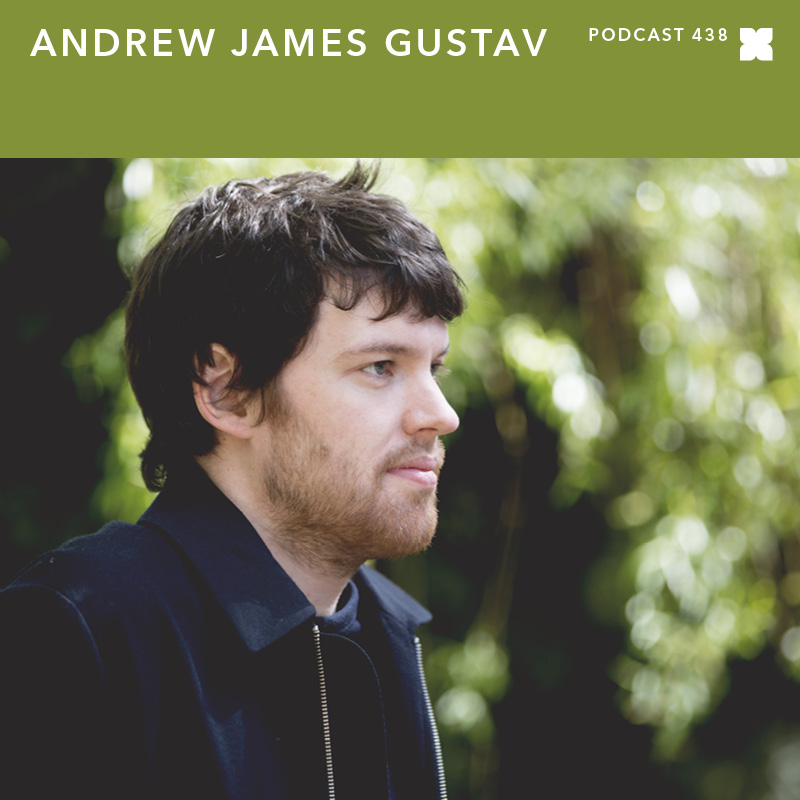
Podcast 438: Andrew James Gustav
The London-based DJ shares the opening hours of an extended club set recorded earlier this year.

Amassing on the peripheries of dance music culture, far from the mainstream, is a group of DJs purveying a sound not quite like anything else around today. You’ll find most of them in small venues across Europe, spinning tunes you’ve never heard and often won’t hear again. They don’t restrict themselves by genre (looking to selections from house, techno, electro, breaks and beyond), with the only common factor being that they are invariably digging up otherwise forgotten records from years gone by, looking to place substance before style. It’s a scene that preserves important values, in a broader sphere where it has become all too easy for musicians without real talent or adequate understanding to sell themselves as DJs.
“I think that the main thing that unites us is that we play records with a bit more character. They have something different about them,” says Andrew James Gustav, an increasingly prominent figure in said scene and curator of this week’s XLR8R podcast. Doing it for the United Kingdom from his home in London, over the past few years he has taken his trade to hotspots across Europe, building a name as of one scene’s most discerning selectors. Anyone who has been fortunate enough to catch one of those gigs will undoubtedly have been exposed to music that is as interesting as it is rousing, presented with seamless, sharp transitions; pouring himself deep into every mix, he tends to surface again wearing an unhinged smile, the mark of a master at work. Quality control and consistency in results ensue, and his energy and excitement channel directly to the crowd.
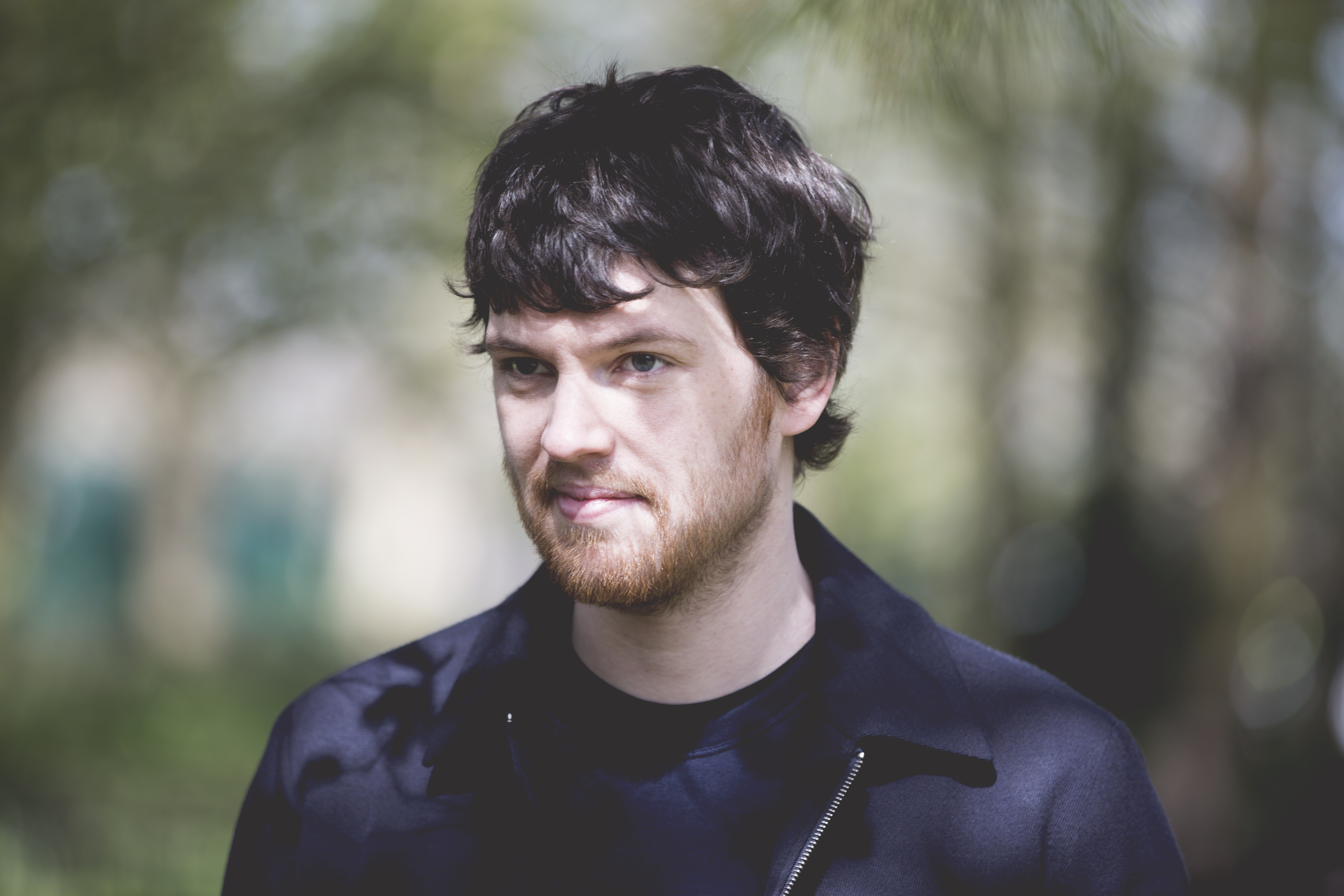
Throughout our conversation at his South London flat (the nerve center in his whole operation, which is bursting at the seams with his and partner Gwenan‘s record collection), Andrew is open and strikingly clear in his ideas. An articulate speaker and academic brain, it’s evident that he has spent good time considering and constructing opinions and thoughts on every aspect of the game. “Some people are losing sight of the point of DJing. A lot of obscure records are obscure for a reason. The danger with all this stuff is that it ends up as a string of curiosities and obscurities. Most people at a party are just normal people looking for a good time.” It’s an awareness that pays off when it comes to performance time, translating into the enviable skill of being able to pull out an appropriate track for every occasion. Popular styles in the scene seem to evolve and expand quickly, accelerated via the hunt for hidden gems; however, some tunes will always sound right.
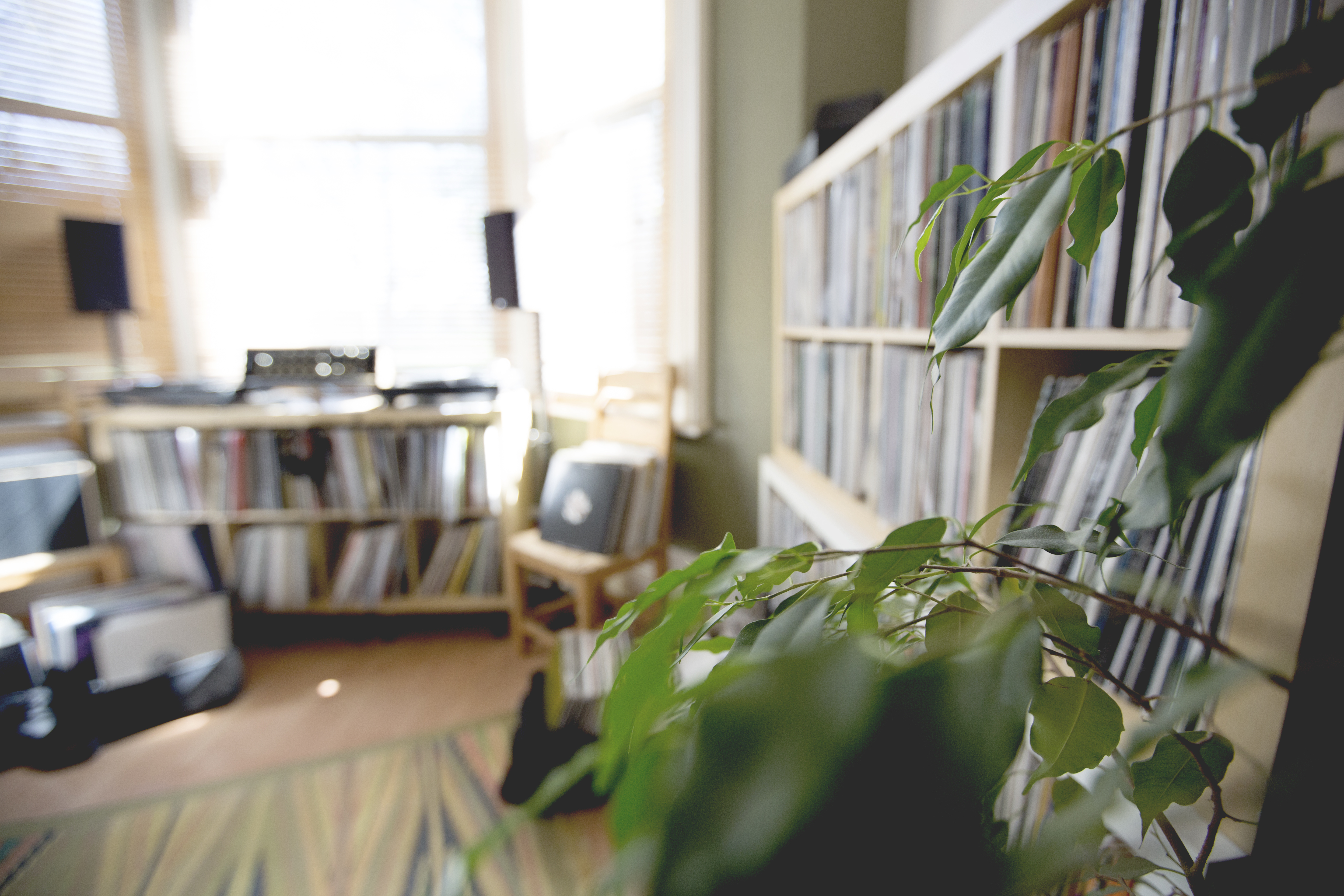
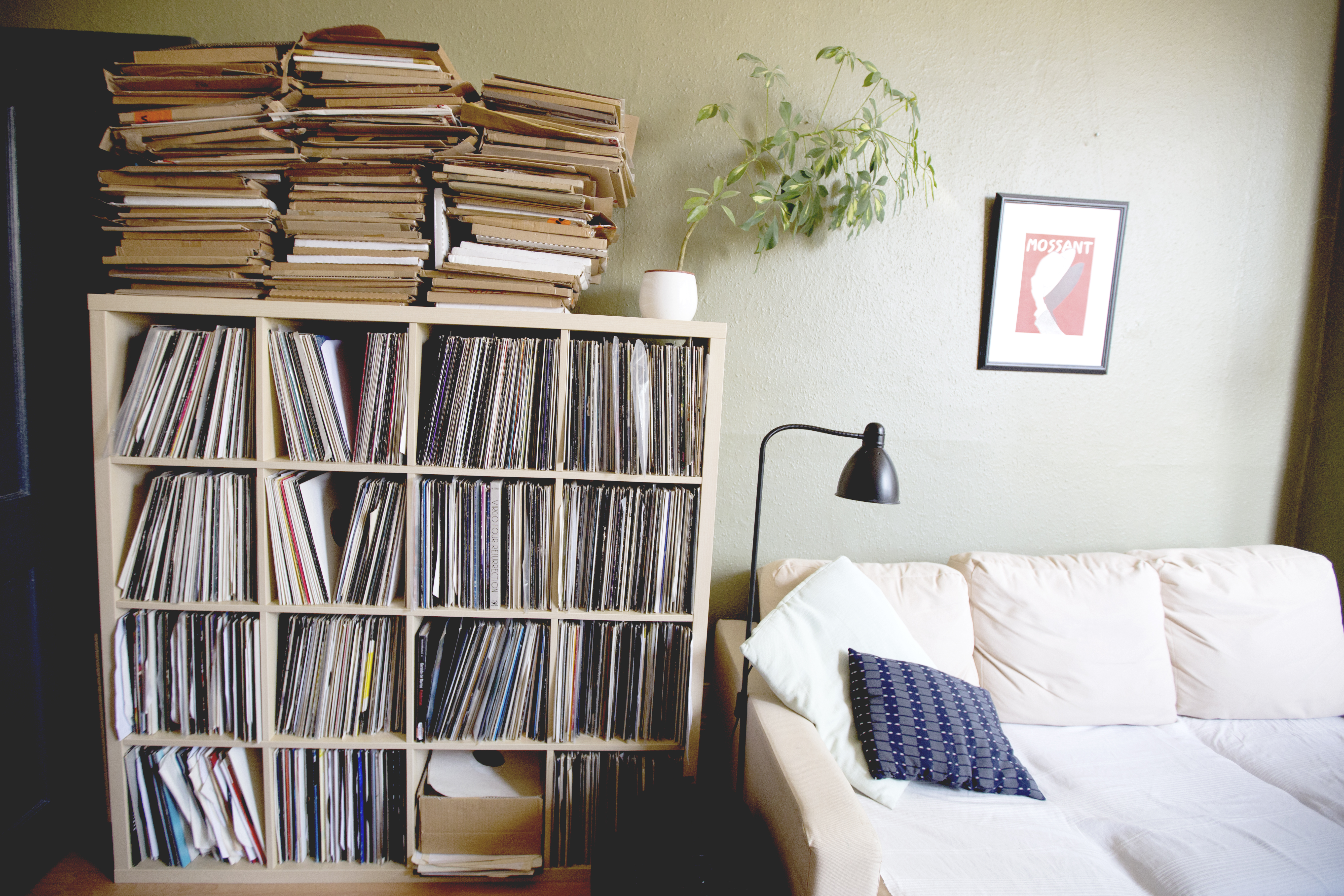
The dancefloor experience he provides today has been getting curated behind closed doors for years. His devotion to music and the collection of it (which verges on an obsession), has been a long-running affair in different shapes and forms. “Going way back, I’d been collecting CDs since I was about 12, so when I got to 18, I owned about 800! I was the guy in school who people would say, “Oh, that band isn’t obscure enough for Andrew.” That was indie bands back then, though.” Further on through life, that same critical interest manifested itself in different ways—his position as Editor of the music section in Edinburgh’s student newspaper, or his mid-noughties hoarding of experimental folk records by the likes of Vashti Bunyan and Shirley Collins, for instance.
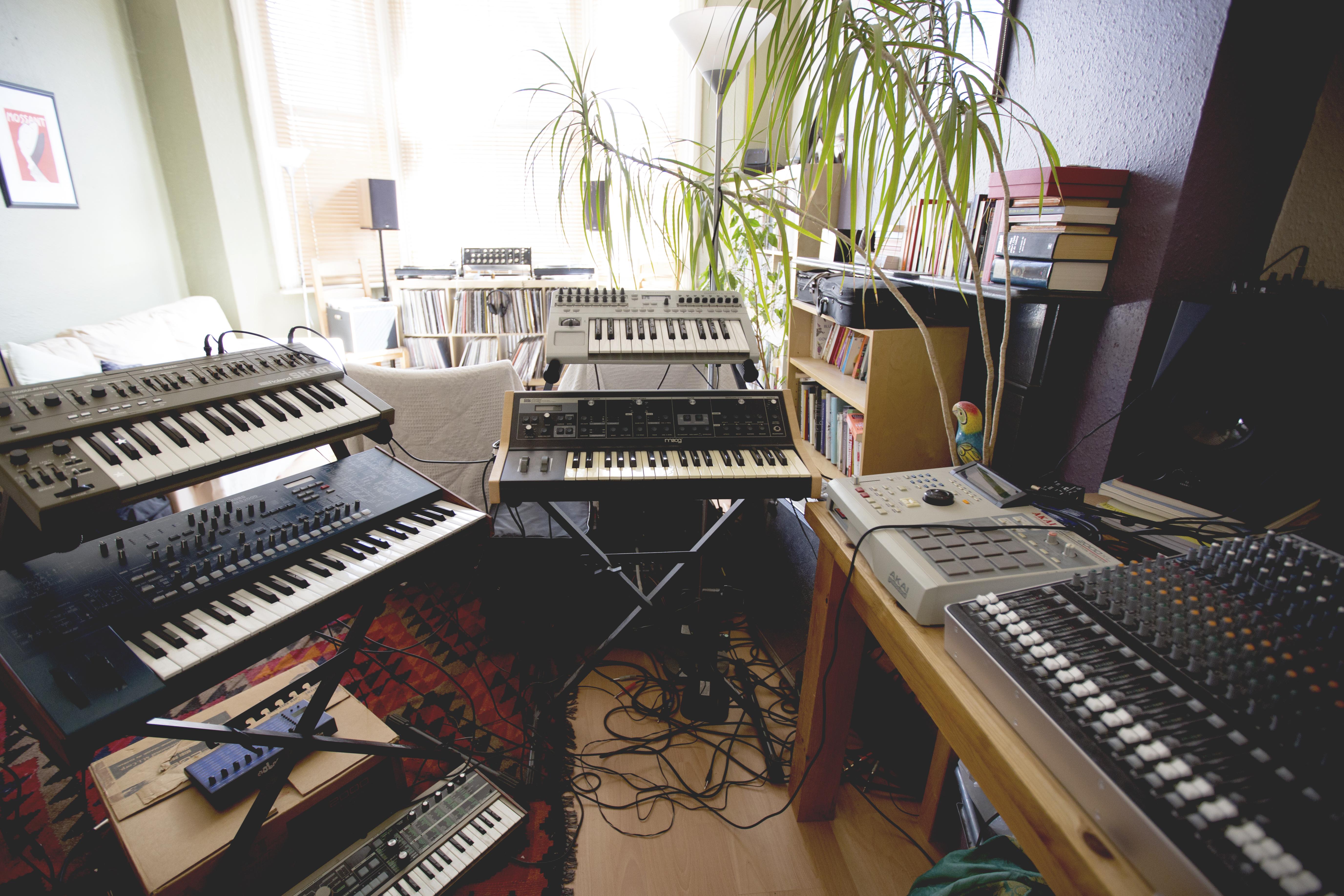
Relatively speaking, he’s still fairly new to the club circuit though, and it is only in the past two years that the frequency and regularity of gigs has escalated so much. You can find him at clubs from Ukraine to Italy every weekend, on bills next to the likes of Onur Özer, Francesco del Garda or Binh. Unlike those characters, however, when he travels home after a long weekend, he must face up to the prospect of returning to his office job each Monday. A fatiguing endeavour, it’s begun to throw up a number of problems: “It’s at a point now where I’m playing alongside DJs who are doing this full-time, who have been doing it for a lot longer than I have. If I want to stand up alongside them, and do myself justice, then I need more time to focus on the music than I have at the moment.” Following our interview last month, Andrew has taken the leap of faith, handing in his notice in favor of pursuing that life in music.
In contrast to most DJs today, he has been forging his way along a totally organic path, evidently never feeling the desire to man any self-promotion—at this point, he doesn’t even have a Facebook artist page. Instead, the swell in interest has been a natural phenomenon, spreading through word of mouth mutterings about his talents among those who have caught him play. Most of the work was shouldered by his Soundcloud page, and particularly his debut online mix, “Moving on,” uploaded three years ago and still garnering attention today. “The mix went online and a few people noticed it, it got a good response, and that kind of gave me some encouragement!”
Not all that long after, following some Discogs liasons, it was a chance encounter at what he describes as “a full on crackers after party with 20 mad Europeans” that put him in contact with London’s Toi Toi events team, after a day of mixing with new friends. “I had all these records that I had been collecting in isolation. Other people were enjoying it, and I was too. I realized that day that something might have changed, and that I might have an opportunity to play music to people in some capacity.” Things moved quickly during Britain’s summer heatwave of 2013, and soon Andrew was a regular feature at their parties, as well as local night Undersound (with whom he is now a resident), both of which he credits as giving him a huge leg-up. “Being welcomed into that so quickly and so openly, I’ll always be very grateful for that.”
Back then, he had been living in London for some time already, a city to which he credits his position today. “It would never have happened without London. If you are somewhere like Berlin, then there are a lot of people doing this kind of music. The energy you get at parties here is totally different, too, because everyone who lives in London has to struggle a bit.” In fact, it had only been a few years prior that he had decided to proceed with DJing. Having collected records throughout the noughties purely for personal enjoyment, it was upon meeting Gwenan (who was herself getting to grips with the skill) that he was spurred on to start mixing them. “I’d never had the balls to do it! I just thought I’d be rubbish at it.”
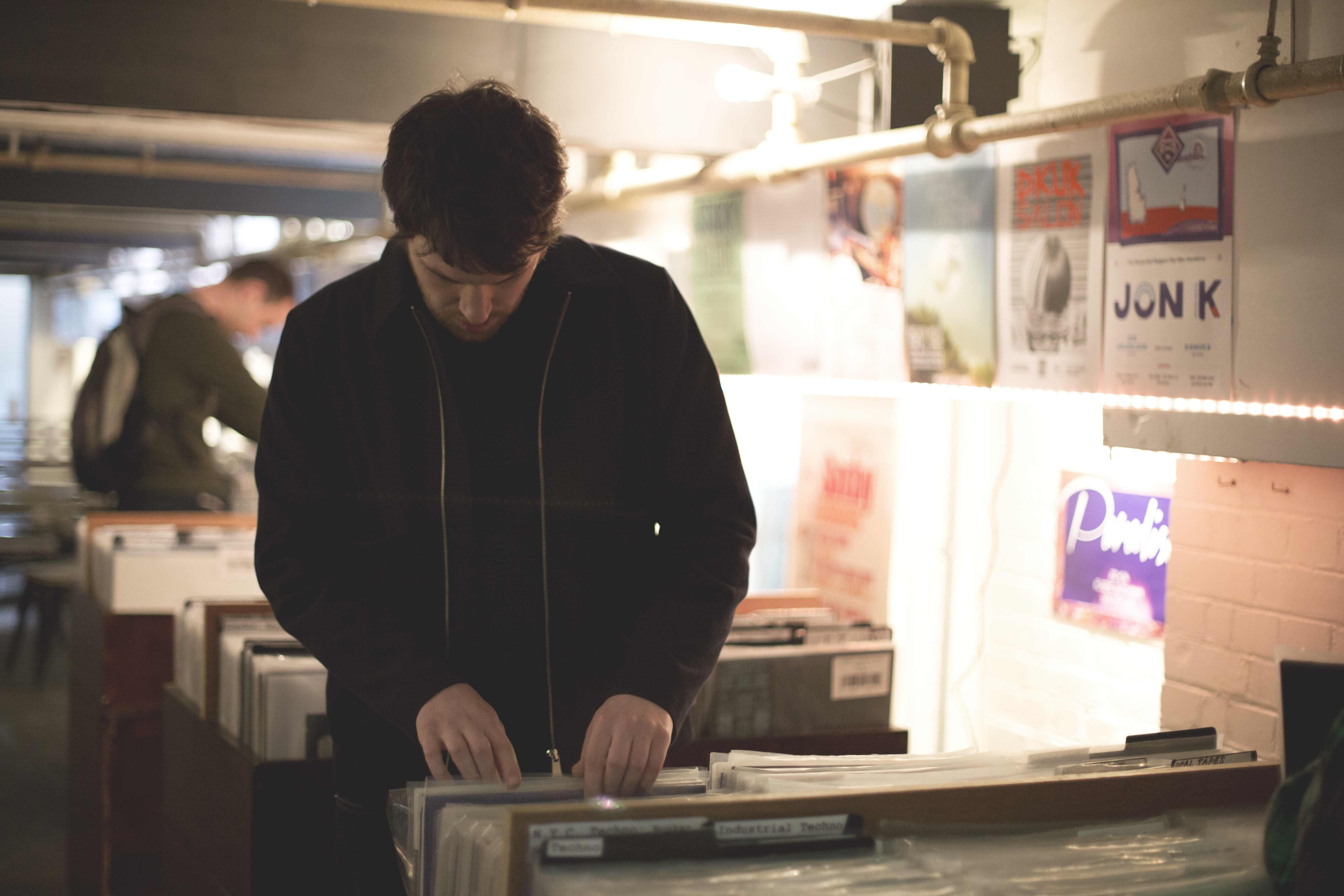
Much of our conversation focuses around the influences that pushed him to where he is now. Prior to giving mixing a shot himself, Andrew was already fully immersed in house and techno. A few juvenile rave experiences aside, things really started for him with the same inspiration that would be cited by many: Via his role at the Student Newspaper, he found himself at one of the infamous Ricardo VillalobosFabric sessions in the mid ‘00s, by invitation from their press team. “That was the first time that I got into a proper club, with proper sound, having a real experience with a DJ playing quality music. For the next two years when I was living in Edinburgh, pretty much every Villalobos Fabric date I would go down on the train, often by myself even.” He gushes about those first few encounters, getting lost in the kind of music his young ears hadn’t heard before. “The energy, the mixing, the invention, as well as the creativity, flow and power—it was all there. It was much more than the sum of its parts. It was a journey.”
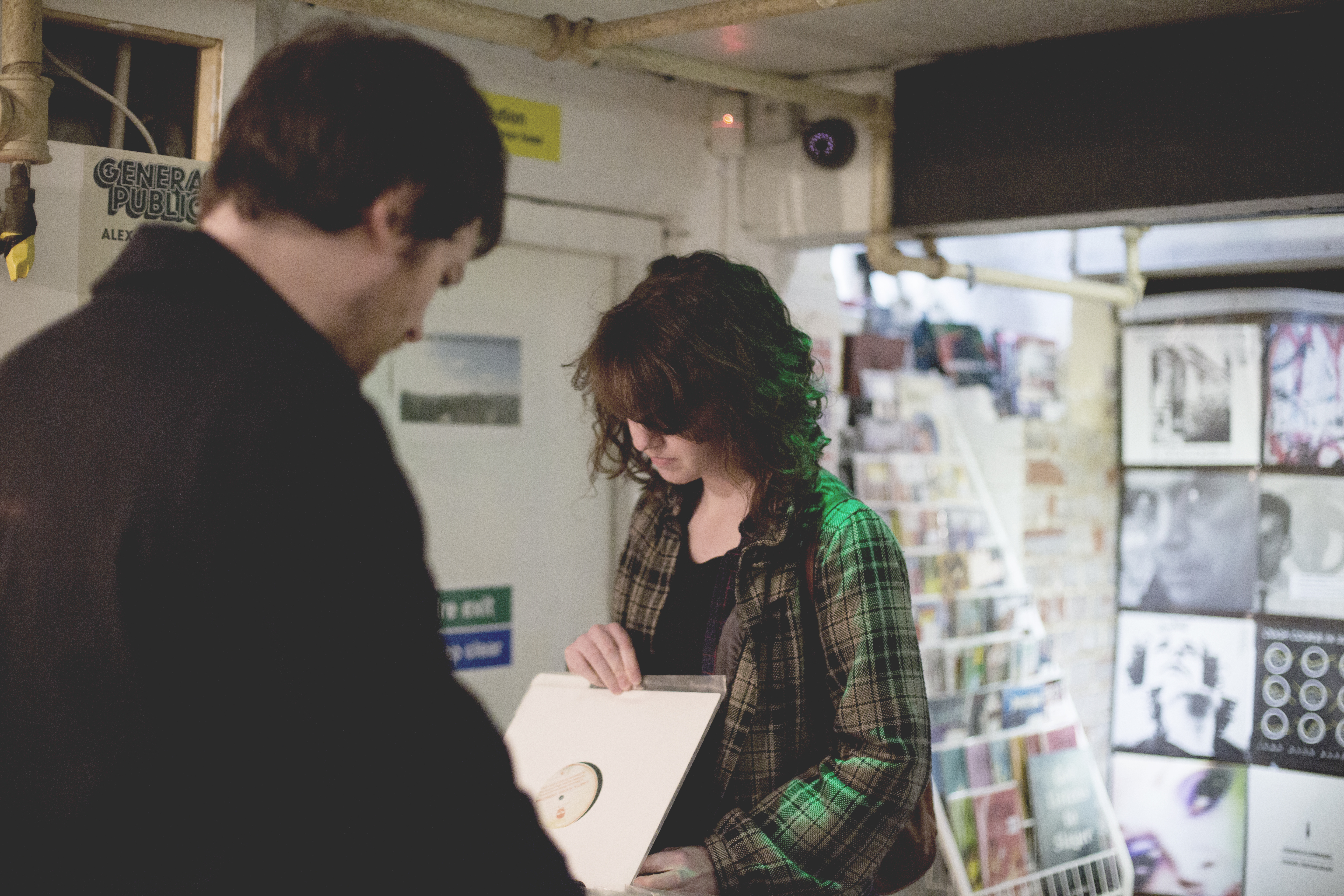
With Ricardo as an introductory point, bit by bit Andrew peeled back the layers of the underground scene. Next up was Zip, who put him on a different trajectory once again, after an unexpected ten hour session at Cassy’s birthday gig in Panorama Bar (a set that is part of dance music folklore today, and one that he recalls as the best he’s ever seen). “Ricardo I always saw as a more full on energy trip, whereas Zip was more about the records, smiling and engaging with the crowd. He creates a crazy, kaleidoscopic energy from a bag of records. It’s the energy, and the pure party spirit. It feels more personal almost.” His footprint was stamped on Andrew’s work, and the imprint is clear still today. Their sounds may be disparate, but the attitude is the same—it’s all about the excitement around the presentation of records.
His points of reference make sense. Zip and Ricardo are the godfathers of the scene, figures to whom much is owed today by many. It’s their way of doing music that he describes, which has been absorbed, admired, and refashioned by this current generation. The more we chat, the deeper we go—the next point of reference being Nicolas Lutz and Binh, the two main players in today’s new breed. Progenitors of the digging craze, in recent years they have rapidly accelerated out of a world focused mainly around Berlin’s Club der Visionaere, to the global stage. “When I heard those two, I realized that there was a higher quality of music out there, somewhere, if you look for it. It kicked off a different chapter of the journey.” Fortunately for Andrew, he would naturally become friendly with Lutz over time, via their mutual involvement in Toi Toi (which eventually led to him opening the Uruguayan’s My Own Jupiter podcast series).
With that musical background, perhaps the key factor that somehow distinguishes Andrew from the rest, is that he approaches things from a UK perspective. Alongside his Berlin-rooted inspirations, he was a regular listener to Ben UFO’s Rinse FM shows (something he would eventually end up contributing to), taking guidance from his direct mixing style. Equally, he stresses the impact that Jane Fitz’s views had on him: “Some of the parties in my scene can be quite poe-faced, and take themselves too seriously, putting the DJs on podiums. Her parties are about the energy, the crowd—it’s more about going back to the rave spirit, and I like that.”
There’s been no fixed stylings with Andrew’s work, and it seems like new tricks are coming to the fore all the time. The podcasts that he first gained attention for tended to align with classic house sounds, the likes of Prescription Records and Point G getting a look in, as well as the occasional blast of UK garage for good measure. Today, you can expect to hear him ploughing through old techno records, at a pacier tempo; still nothing run of the mill, however, as he has preserved that high filter of only the most interesting selections. On this matter, he keeps returning to the importance of the other sets of ears that surround him: Nicolas Lutz and Gwenan in particular have shaped his growth. Bouncing thoughts and tunes off one another, it’s a close affinity that fosters new ideas and improvements, and Andrew can’t emphasize his appreciation for them enough. “It was always important having good friends to listen to the music with all along, too. None of it can happen in a vacuum.”
The latter of those two figures, Gwenan, has been of particular significance—living together in that shared flat for years, their vision of DJing has grown in tandem. The past weekend, he played together with her at Concrete in Paris (on a bill that included Robert Hood and DJ Stingray), and is looking forward to debuting at the infamous Welsh festival Freerotation alongside her. The duo have also just announced a trip as far afield as Tokyo later this summer, on top of a whole host of other solo bookings. In recent months he has landed himself gigs in major institutions including ARMA17, Robert Johnson and Hoppetosse—I was lucky enough to catch him at the latter two, and in both forums he excelled.
He might have been deep in the music for years, but Andrew has now found himself at the beginning of a new path. It’s at a transitional point—with major lifestyle changes unfolding, it’s bound to provoke a few worries, as well as many reasons to feel excited. If anything, it’s going to be his attitude and inherent positivity that will carry him forwards. “Up until now, everything has been building. I just want to keep on turning up to parties, doing a good job, making new relations, and enjoying it all. I couldn’t ask for much more right now.”
On the question of his future, he seems a little reluctant to count his chickens. “Since the turn of the year, it’s been gigs for me every weekend. I don’t know if it will continue, but it does feel like there is something in the air!” Only time will tell, but with the ability to impress with material like this week’s podcast, it seems like he’s making a bright future for himself. Kindly sharing over two hours taken from the opening of an extended set recorded earlier this year, it’s the first live club recording of Andrew’s to hit the internet. Unlike the podcasts that fill up his Soundcloud, which tend to go a little deeper, this is a real insight into his dancefloor selection and flow, with a look into the kind of records that have got him to this point.
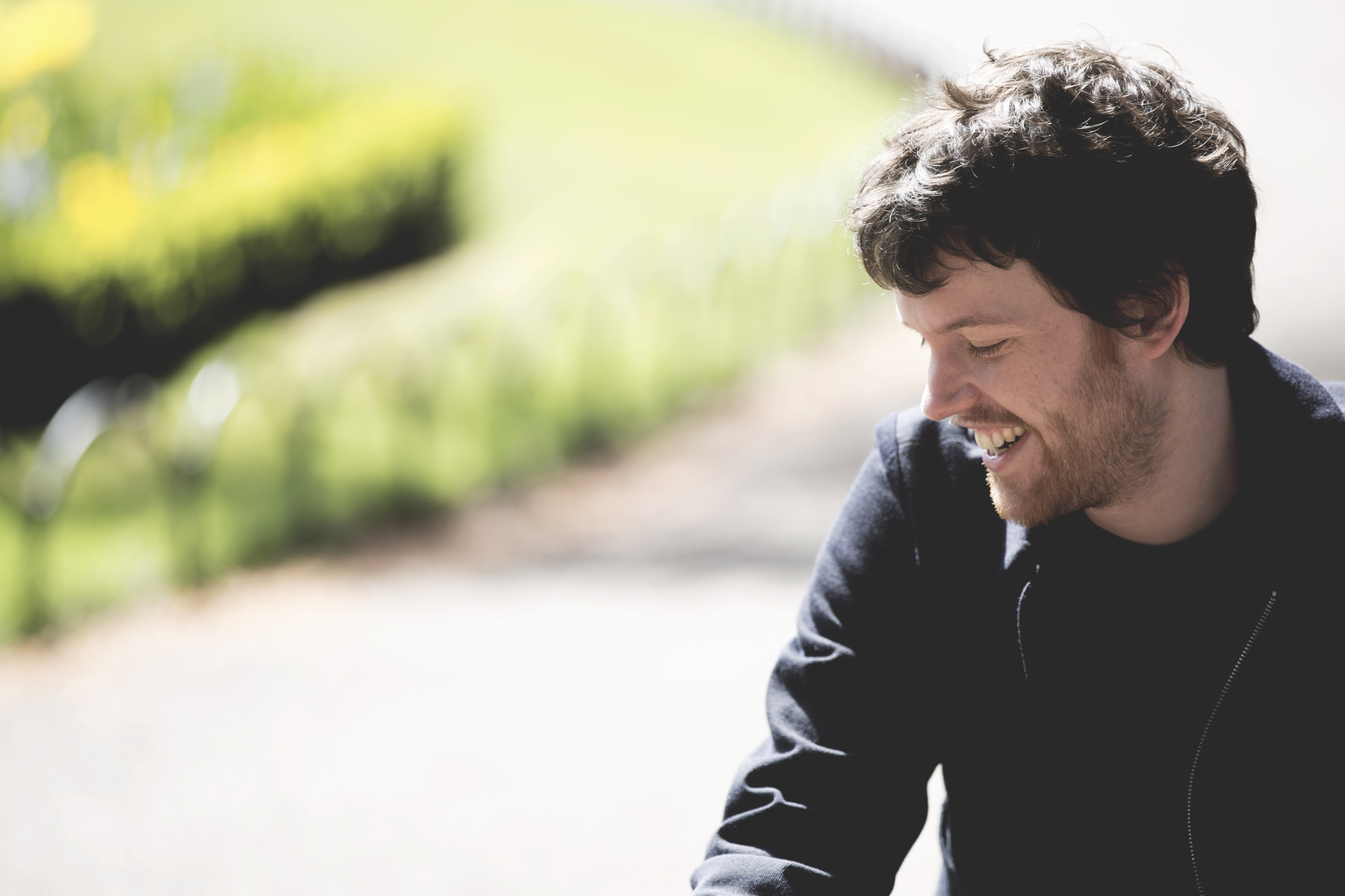
Upcoming Dates:
13/5 ART OF DARK, RODNYA, Moscow, Russia
20/5 Anarchy in the Club, Goa Club, Rome, Italy
21/5 Roof Club, Isernia, Italy
27/5 Kommuna 2, Barcelona, Spain
29/5 HOME, Studio 338, London
3/6 Studio EW, Sofia, Bulgaria
4/6 Meex Festival, Strasbourg, France
10/6 Mazargues Affair, Marseille, France
11/6 PLATFORM, Swansea, UK
18/6 ART OF DARK – Off Week Open Air, Barcelona, Spain
18/6 Checkpoint ■ Barcelona OFF Week 2016 meets EKLO, Barcelona, Spain
24/6 DAZE OF PHAZE, Tokyo, Japan
25/6 DAZE OF PHAZE, Kobe, Japan
1/7 Mystik, Seoul, Korea
2/7 Art of Dark, Studio 338, London
8/7 Freerotation, Wales, UK
16/7 Hold Youth, Rex, Paris, France
23/7 Art of Dark, Club Der Visionaere, Berlin
All photos: Carrie Tang
Support Independent Media
Music, in-depth features, artist content (sample packs, project files, mix downloads), news, and art, for only $3.99/month.

